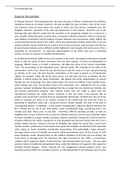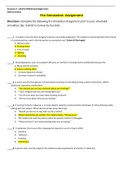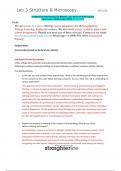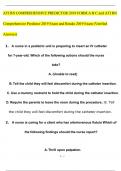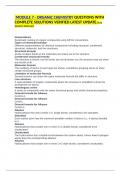Essay
Essay: How do Mary Shelley and Margaret Atwood portray the narrator in Frankenstein and The Handmaid's Tale?
- Module
- Unit 2 - Prose
- Institution
- PEARSON (PEARSON)
A* marked practice essay for Unit-2, prose for the Pearson Edexcel English Literature A-level.
[Show more]
